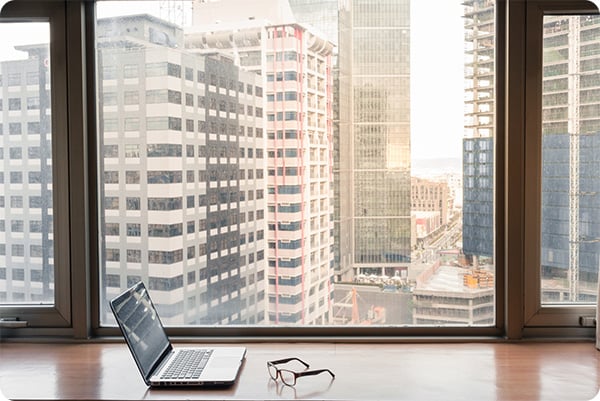Table of Contents

Its central location is also a major factor, at just a short flight away from many popular cities such as Bangkok or idyllic destinations such as Phuket island in Thailand which can be accessed with a direct flight from Singapore. Impressive right? If the island nation is on your radar for your next international assignment, our useful country guide can help you adjust to expat life in Singapore.
Singapore quick facts
In 2024, Singapore was voted one of the top places for expats to live, coming in third place after Talinn in Estonia and Bern in Switzerland. This makes Singapore the top destination in Asia for expats.
Main languages: English, Malay, Mandarin and Tamil
Population: 6.03 million
Main religion: Buddhism, Christianity, Islam and Hinduism.
Political system: Unitary parliamentary constitutional republic
Currency: Singapore Dollar (SGD)
Quality of Life for Expats in Singapore
The Expat Insider Report 2023 places Singapore 6th on quality of life factors including safety, security and high quality and available healthcare.
One of the worlds cleanest and safest cities, Singapore has a lot to offer expats. Indeed, one in every three people in Singapore is an expat, the non-resident population in Singapore stood at 1.77 million in June 2023, an increase from the previous year. With this number increasing it is resulting in a cosmopolitan melting pot of ethnicities and traditions.
With a large and friendly expat community and widely spoken English, the transition when you first arrive in Singapore may be easier than other Asian cities. If you are struggling to learn a new language while you’re on assignment, read our blog on how to learn a language as an expatfor some top tips.
Education standards are high in Singapore, offering a choice of excellent international schools catering to the education needs of expatriate children. Combined with the equally high standards of the local schooling system, Singapore is a great place to raise a family. Moving abroad with children can be difficult, but we are here to assist you with this progress, providing expat parents with useful information about moving abroad with children.
Food is a significant part of Singapore’s culture, from the numerous hawker stalls offering tasty but inexpensive street food to the high-end fine dining restaurants, Singapore offers rich and varied dining experiences.
Outdoor living and sports are well catered for in Singapore, with many public parks providing exercise facilities, the sunny climate makes participation in outdoor sports and water activities possible year-round. This outdoor lifestyle is attractive to many expats moving to Singapore.
Regional access is excellent from Singapore, located in the heart of Southeast Asia, travel for both business trips and weekend breaks to one of the areas beaches or islands is easy. Living in Singapore as an expat will be beneficial to those wishing to travel and see more of Southeast Asia, a factor that many expats take into consideration when participating in an assignment abroad.
All in all, the climate and cosmopolitan lifestyle make Singapore a wonderful destination to work, live and play. The rich mix and harmonious co-existence of different cultures, lifestyles and religions coupled with a lively dining and entertainment scene, ensure that quality of life in Singapore for expats is high.

Cost of Living for Expats in Singapore
So, Singapore offers expats an exceptional lifestyle, however this comes at a price. Singapore is one of the world’s most expensive cities. While prices for food, clothing, public transport and utilities in Singapore are relatively low, accommodation, private education and cars can be expensive.
The public transportation service in Singapore is excellent and inexpensive.
Although Singapore is ranked by Mercer as the world’s second most expensive city to live in. Expat salaries are high and keep pace with the rising prices. Despite the relatively high cost of living, many expats say they have more disposable income than they did back home.
Example Cost*
(compared with an European city using a large cost of living database)
McDonalds meal SGD $10 (€9)
Litre milk SGD $3.68 (€1.26)
Pint of beer SGD $10 (€6)
Internet SGD $47.59 per month (€48.37)
1 bedroom city centre apartment SGD $3589 per month (€1607)
Public transport (monthly ticket) SGD $128 (€100)
Healthcare in Singapore
Healthcare in Singapore is well established with a mix of 10 public and 13 private hospitals, regulated by the Singapore Ministry of Health and its statutory bodies and staffed by highly qualified medical teams.
Although healthcare standards are high in both public and private hospitals, many expats opt for private hospitals for primary care. For expats, who may not qualify for any subsidies, the cost of medical treatment in both private and public hospitals is quite similar.
For emergency services, expats usually choose the 24-hour Accident & Emergency departments located in the public hospitals.
For an ambulance, dial 995 (an ambulance fee applies for non-emergency call outs).
For expats living in Singapore a good international health insurance plan is crucial to ensure continued access to quality healthcare and avoid expensive medical fees. If you’re living in Singapore as an expat and assessing health insurance options you should consider including a repatriation plan from Allianz.
For more information on the healthcare system in Singapore, visit the Singapore Ministry of Health.
Visa Info for Expats moving to Singapore
For anyone considering relocating to Singapore for work or study, advice and the most up to date information on visa requirements and regulations can be obtained by visiting the Singapore Immigration and Checkpoints Authority.
Are you moving abroad?
Before venturing to another country, make sure you have a health insurance plan you can rely on.
Meet the author
Allianz

At Allianz Partners, Health, our blog is crafted by a team of experts dedicated to providing valuable insights and guidance on global health and insurance topics. With a focus on expatriates, international businesses, and individuals navigating healthcare abroad, our authors bring a wealth of knowledge and experience to every article.
We aim to deliver practical advice, industry updates, and actionable tips to help you make informed decisions, whether you're exploring international health insurance, managing employee health plans, or staying informed about the latest healthcare trends. Trust our blog to be your go-to resource for navigating the world of global health and insurance.












